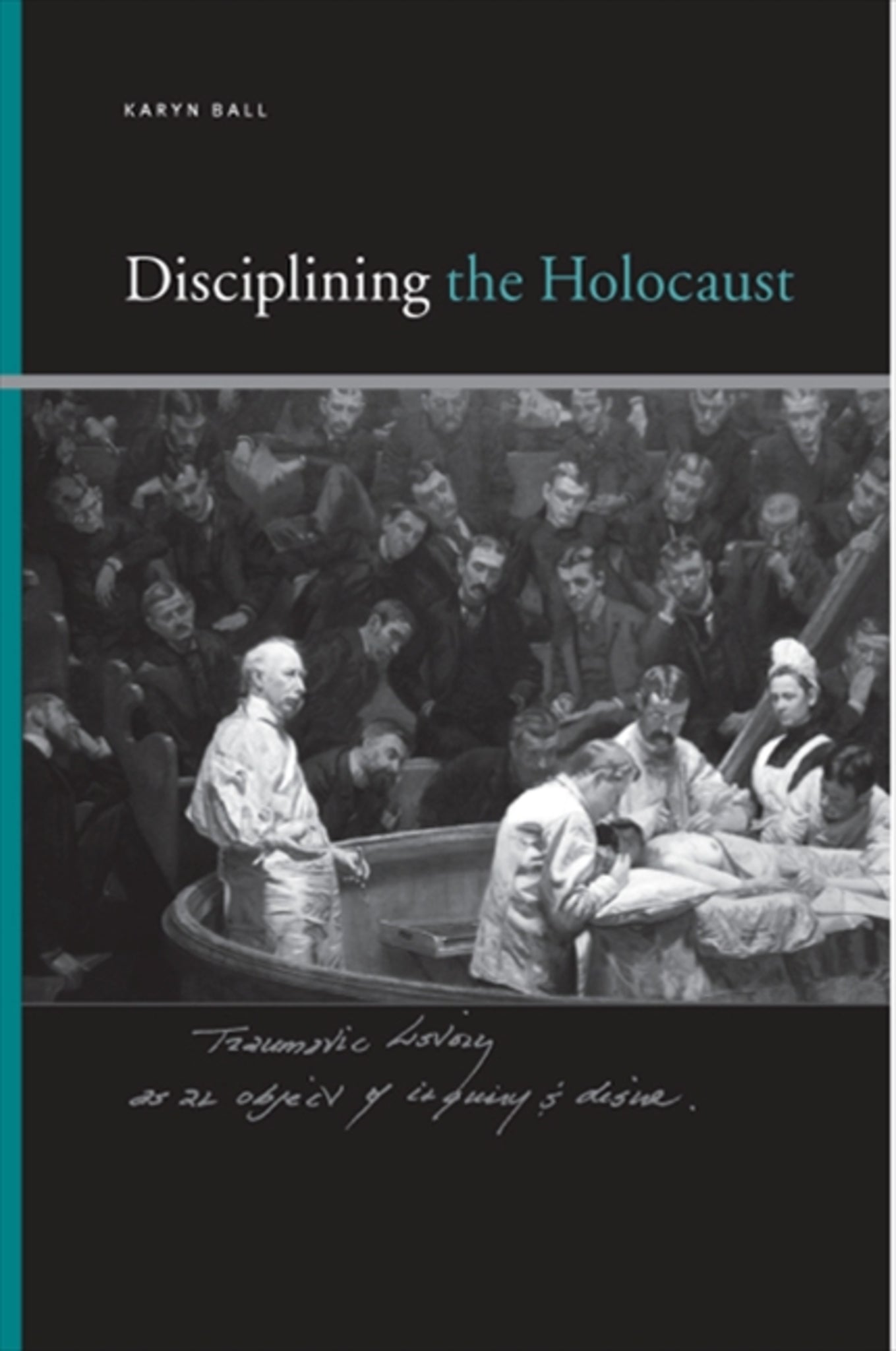We're sorry. An error has occurred
Please cancel or retry.
Disciplining the Holocaust

Some error occured while loading the Quick View. Please close the Quick View and try reloading the page.
Couldn't load pickup availability
- Format:
-
23 October 2008

Explores the relationship between disciplinarity and contemporary ethics of scholarship about the Holocaust.
Disciplining the Holocaust examines critics' efforts to defend a rigorous and morally appropriate image of the Holocaust. Rather than limiting herself to polemics about the "proper" approach to traumatic history, Karyn Ball explores recent trends in intellectual history that govern a contemporary ethics of scholarship about the Holocaust. She examines the scholarly reception of Goldhagen's Hitler's Willing Executioners, the debates culminating in Eisenman's Memorial to the Murdered Jews of Europe in Berlin, Lyotard's response to negations of testimony about the gas chambers, psychoanalytically informed frameworks for the critical study of traumatic history, and a conference on feminist approaches to the Holocaust and genocide. Ball's book bridges the gap between psychoanalysis and Foucault's understanding of disciplinary power in order to highlight the social implications of traumatic history.


"Disciplining the Holocaust is an ambitious and thought-provoking study that touches on many uncomfortable questions for scholars in this area. It will undoubtedly prompt discussion and debate." — H-Net Reviews
"A complex book about a difficult topic." — CHOE
"Disciplining the Holocaust is a brave, multileveled, and important intervention that presages a new type of historical meditation, one in which new ways of framing the unrepresentable are on display. The book is informed by an impressive combination of critical vocabularies, all of which seem needed to address one of the bewitched sites of modernity." — Tom Cohen, author of Ideology and Inscription: "Cultural Studies" after Benjamin, De Man, and Bakhtin
List of Illustrations
Acknowledgments
Introduction
1. Disciplining Traumatic History: Goldhagen’s "Impropriety
Goldhagen’s Impropriety • Trauma and the Disciplinary Imaginary
2. The Aesthetics of Restraint: Peter Eisenman’s "Jewish" Solution to Germany’s Memorial Question
Memorial Culture before and after Reunification: Between Revisionism and Jürgen Habermas’s "Western Consensus" • "What have we done to ourselves by doing away with the Jews?": The Memorial and Its Interlocutors • Deconstructivist Architecture between Libeskind and Eisenman: Toward a "Jewish" Antimemorial Genre?
3. "Auschwitz" after Lyotard
The Wound of Nihilism • Improper Ends • Expropriating the We • Affective Evidence • Survivor Memory and the Limits of Empathy
4. "Working through" the Holocaust? Toward a Psychoanalysis of Critical Reflection
Libidinal Reflections • Against Catharsis • Sadomasochism and the Disciplinary Imaginary
5. Unspeakable Differences, Obscene Pleasures: The Holocaust as an Object of Desire
The Discipline of Compassion between Testimony and Confession • The Holocaust as a Feminist Object of Desire
Notes
Index



